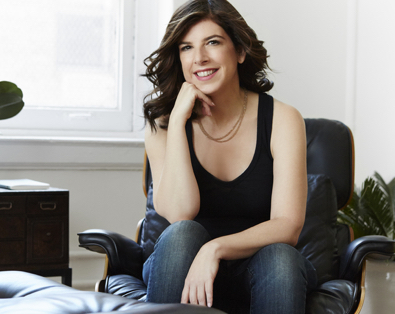My Mom developed cancer when I was forty. Most of her remaining time was a waiting game, waiting for news from recent tests that could take weeks, for the next chemo round, to hear if she was in remission, or for an appointment with her oncologist who seemed to always be out of town on a fishing trip or a bicycle race or at his second home in Colorado.
Yet, my mother never complained.
“Mom, how do you do this?” I asked her. “Isn’t it hard to wait like this . . . in the unknown?”
She responded quickly, “That’s what we all do, Lynn, all the time. That’s what life is.”
“But, how can you be so patient?”
“That’s all we can do. We have no other choice… one step at a time.”
Mom was determined to build her strength daily by walking rounds on Seven West’s floor at the Pink Palace, what she called the hospital painted pink on top of a hill overlooking our hometown of Tulsa. She carted her chemo drip, smiling, saying hello to all the nurses, and handed out bags of mini Snickers, Reese’s Peanut Butter Cups, and Three Musketeers. She courageously made the most of her time.
For my Mom, it was more like “Don’t sweat the big stuff.” The small details were where she could gain some sort of control.
She liked her coffee poured two inches into the cup and microwaved in the nurse’s kitchen for exactly thirty seconds. Her day planner, Chapstick, and crossword puzzles were stacked neatly to the left on the hospital bedside table. The phone sat on the bed next to her hip for easy access. She came to know all the nurses by name, who she liked and who she didn’t, who was helpful and who wasn’t, sometimes expecting care as though she were actually in a high-end spa, but most of the time resigned to the circumstances.
“I’m inspired by you, Mom,” I wrote to her among other things in an email. “You’re so brave.” I was astonished by her ability and courage to meet emptiness, especially in the face of death.
Emptiness is a buzzword in Buddhism. Westerners have misunderstood this word to mean “a void.” And that’s what we’re really afraid of, being sucked up into some kind of black hole.
But what “emptiness” really means in the Buddhist sense is spaciousness, boundlessness, and connectedness.
As a culture we’re so used to doing, doing, doing, going, going, going to get ahead and achieve. We see emptiness as crushing rather than freeing.
When we first sit down in the morning at our desk with a pile of papers and a long to-do list, we can feel trepidation or panic. Meeting a white piece of paper or staring at a blinking cursor takes tremendous fearlessness.
One reason so many historically great writers, when faced with a blank page, were prone to drink. They attempted to soothe their fear and fill the unknown that creativity asked them to consciously meet. But they didn’t have to suffer in the name of art.
Our opportunity is to see our thoughts as if they were like clouds moving across a great sky. When we look up at the infinite sky and feel its spaciousness, what do we really experience inside?
We might feel:
Openness
Expansion
Relaxation
Lightness or floating sensations
Fluidity and flow
Calmness
When we meet emptiness we connect to something much greater. A current of energy awakens in us. Loneliness and anxiety subside. Our hearts expand. We feel in love with what we’re doing, with others, with life.
This is what happens when we step through fear. This is what’s on the other side. If only we could know this and trust it.
We’d show up everyday ready to meet our list, chores, work, relationships, the empty canvas or the Word document. We’d feel safe in stillness and silence. We’d delight in the uncharted. We’d feel calm in the uncertainty of our future or even peace in the face of death.
But this seems a grand thing to ask of us. After all, we only know what we’ve experienced. Most of us, if not all of us, are more comfortable with what’s familiar. And what we know best is fear. Love scares the bejesus out of us so fear is the most pervasive.
Elizabeth Kübler Ross, author of On Grief and Grieving writes “There are only two emotions: love and fear. All positive emotions come from love, all negative emotions from fear. From love flows happiness, contentment, peace, and joy. From fear comes anger, hate, anxiety and guilt. It’s true that there are only two primary emotions, love and fear. But it’s more accurate to say that there is only love or fear, for we cannot feel these two emotions together, at exactly the same time. They’re opposites. If we’re in fear, we are not in a place of love. When we’re in a place of love, we cannot be in a place of fear.”
You know people too, people who have faced their terrors and overcome, that have inspired us as a world to continue and persevere under all circumstances:
Nelson Mandela who spent 18 years in a small cell forced to do hard labor to then end apartheid.
Helen Keller who was the first blind person to get a graduate degree to then campaign on social welfare, women’s suffrage and disability rights.
Beethoven, who even when he started to lose his hearing, composed some of the most beautiful symphonies the world has ever heard.
JK Rowling who was on benefits as a single mother and rejected by several publishers, only to become the world’s best selling children’s author.
Or Rosa Parks who refused to give up her bus seat.
May we be inspired by those who lead from love and not fear and meet the unknown!


